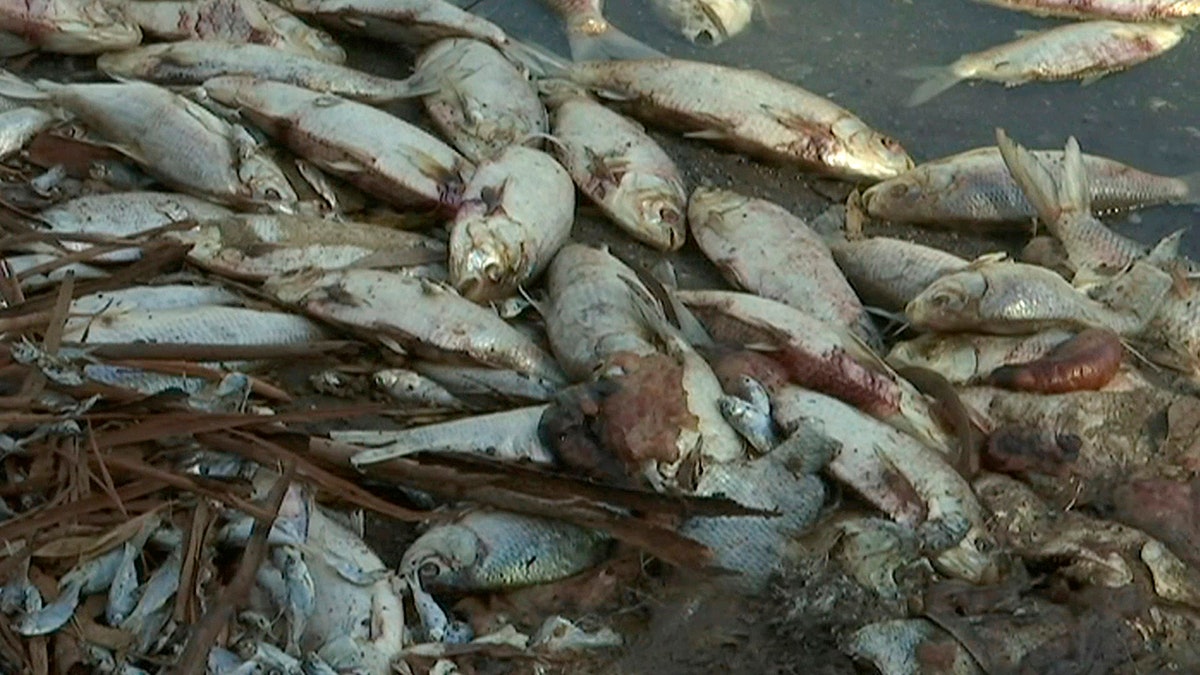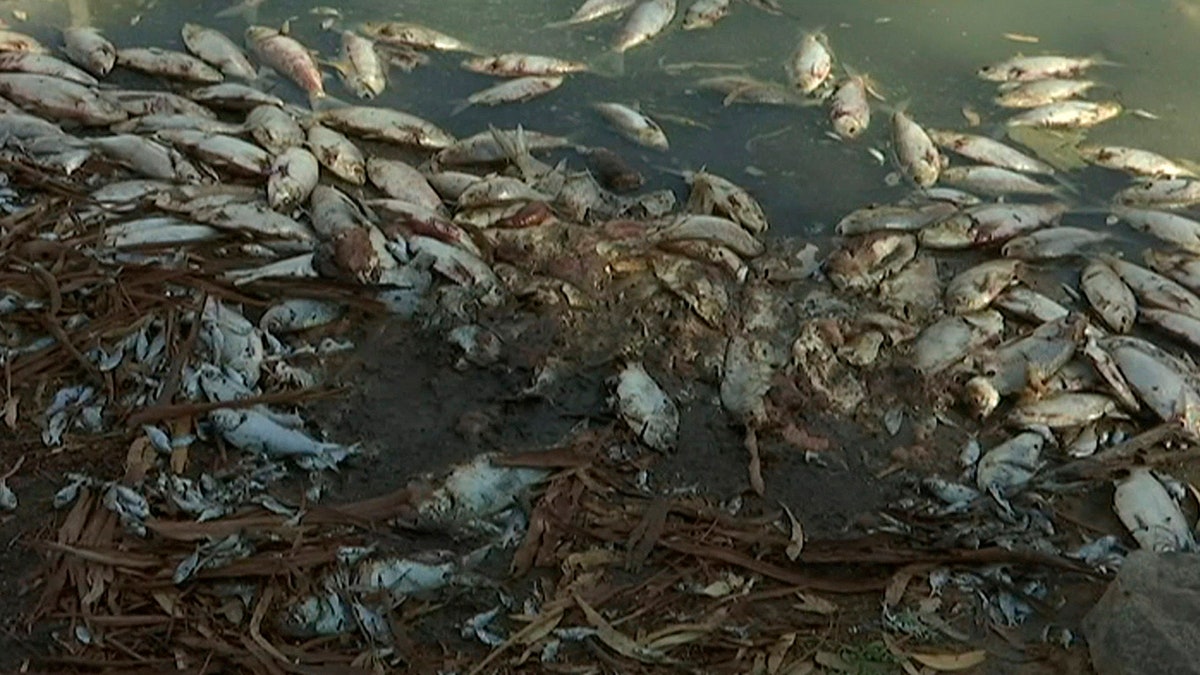
This image made from a video taken on Jan. 7, 2019, shows dead fish along the Darling River bank in Menindee, New South Wales, Australia. An Australian state government on Tuesday, Jan. 15, 2019 announced plans to mechanically pump oxygen into lakes and rivers after hundreds of thousands of fish have died in heatwave conditions. (Australian Broadcasting Corporation via AP)
Nearly a million fish were found dead last week in an Australian river, prompting local wildlife experts to find ways to curb the heatwave conditions they claim are responsible for the deaths.
The hundreds of thousands of fish are lining the banks of waterways in New South Wales and they are quickly rotting in record-breaking temperatures. Just this week, more than 1,800 more fish were found in Lake Hume in the state’s south.
SNAKE FOUND COVERED WITH MORE THAN 500 TICKS
While a massive cleanup is underway, the local government announced Tuesday new plans to mechanically pump oxygen into local lakes and rivers to hopefully curb the effects of the heatwave conditions, drought, and algal blooms experts say caused waterways to be starved of oxygen.
“They are a Band-aid solution – we admit that,” Minister for Regional Water Niall Blair said of the 16 battery-powered aerators will be placed in various drought-affected waterways. “Nothing will stop this fish kill unless we get proper river flows and water levels in our dams back to normal. We are doing everything we can to try and limit the damage.”
Blair rejected some criticisms that governments were allowing irrigators to take too much water from the Murray-Darling Basin, Australia's main river system, which winds across four states and is where a third of the nation's food is produced.

This image made from a video taken on Jan. 7, 2019, shows dead fish along the Darling River bank in Menindee, New South Wales, Australia. An Australian state government on Tuesday, Jan. 15, 2019 announced plans to mechanically pump oxygen into lakes and rivers after hundreds of thousands of fish have died in heatwave conditions. (Australian Broadcasting Corporation via AP)
However, it seems like some of the criticism might be warranted as it was revealed Monday that New South Wales pulled 60 percent of its funding from its river management program in 2013 that would have monitored the health of fish in the river.
The program included a “sustained commitment” of 50 years with an end goal of restoring fish stock to 60 percent of what it was before the arrival of Europeans on the continent., The Guardian reported.
Australian National University water expert Daniel Connell said many more fish would likely die with heatwave conditions forecast to continue until the weekend.
"It's a very predictable crisis," Connell said.
CLICK HERE TO GET THE FOX NEWS APP
Connell said taking water from the system to irrigate had likely contributed to the poor water quality in rivers as well as the drought which is impacting most of New South Wales.
"By massively reducing the amount of water in the system, you produce much hotter water, you produce conditions that are much more conducive to algal blooms," he said.
The Associated Press contributed to this report.